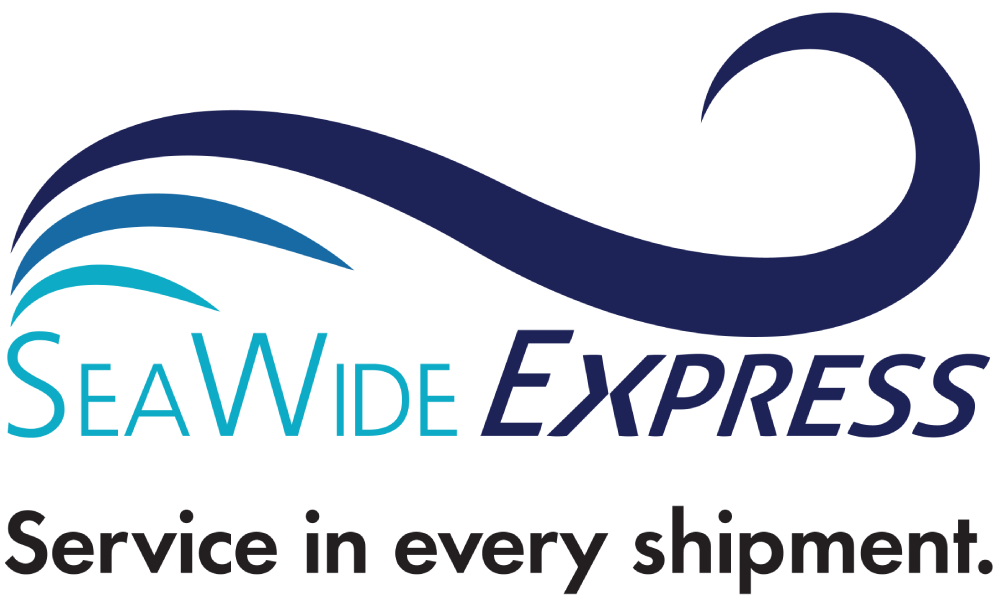Understanding Freight Options: LTL, LCL, FTL, FCL Explained
SeaWide Express specializes in navigating the complexities of freight forwarding, particularly to and from the captivating destinations of Alaska, Hawaii, and Guam.
As your dedicated partner in shipping, we understand the significance of choosing the right freight option for your cargo's journey—be it for businesses with commercial goods or individuals with personal belongings.
Understanding Freight Terminology
In the vast expanse of freight shipping, terminology can often feel like a puzzle, but we're here to shed light on the essentials:
Less-Than-Truckload (LTL)
Ideal for shipments that don't require the space of an entire truck, Less-Than-Truckload (LTL) is a highly efficient, cost-effective solution for smaller freight needs. LTL shipping allows multiple shippers to share truck space for their goods, which are consolidated in a single vehicle. This method reduces shipping costs by only charging each shipper for the portion of the truck used, based on the weight and space their cargo occupies.
It also offers the flexibility of scheduling more frequent shipments, which is ideal for businesses that do not have the volume to fill an entire truck but need to maintain steady delivery schedules. LTL reduces waste and energy consumption, aligning with sustainable logistics practices by maximizing the efficiency of each trip.
Less-Than-Container Load (LCL)
LCL shipping is the maritime equivalent of LTL and is perfect for businesses that need to ship smaller amounts of cargo that do not require a full container. In LCL shipping, freight from various shippers is consolidated into a single container. This approach not only optimizes the cost by splitting it among multiple parties but also enhances shipping frequency without waiting to amass enough cargo for a full container.
LCL can reduce costs significantly, provide greater flexibility in shipping schedules, and allow businesses to manage inventory better without overstocking. Additionally, it facilitates easier access to international markets by providing a more feasible and economical option for smaller shipments.
Full-Truckload (FTL)
When cargo volumes or the nature of goods demand exclusive use of a truck, Full-Truckload (FTL) shipping becomes the necessary choice. This method is best suited for larger shipments that can fill an entire truck, high-value goods, fragile items that require special handling, or products that need to be delivered quickly without stopovers.
FTL shipping reduces the risk of damage and loss as the cargo is handled less frequently and travels directly from the sender to the receiver. It also provides shippers with greater control over the timing and routing of their goods, making it ideal for meeting strict delivery schedules or handling sensitive products.
Full-Container Load (FCL)
Similar to FTL but on the high seas, Full-Container Load (FCL) shipping means your cargo exclusively occupies a shipping container. This option is preferable for large volumes of goods, as it offers both security and efficiency.
FCL is not only cost-effective for substantial shipments but also speeds up the shipping process by eliminating the need to consolidate cargo with other shippers. FCL shipments typically experience fewer delays and less handling, which significantly decreases the risk of damage. For international shippers with enough products to fill containers, FCL ensures that their goods can be shipped with minimal disruption and maximum speed.
Choosing the Right Freight Option for Your Needs
Choosing the right freight option is crucial for optimizing logistics operations, controlling costs, and ensuring the timely delivery of goods. Each method has its distinct advantages and can be selected based on the specific requirements of your shipment volume, frequency, budget, and handling needs.
AJC Freight Solutions specializes in providing tailored freight options to meet diverse shipping needs, helping you navigate the complexities of logistics with ease and efficiency.
When contemplating your freight options, consider these pivotal factors:
Shipment Size and Weight: Opt for LTL/LCL for smaller loads and FTL/FCL for larger volumes.
Budget: While LTL/LCL may offer cost-effectiveness for smaller shipments, FTL/FCL could yield savings for bulkier loads.
Speed Requirements: If time is of the essence, FTL/FCL generally provide faster transit times.
Destination Logistics: Particularly crucial for remote destinations like Alaska, Hawaii, and Guam.
Breakdown of Each Freight Shipping Option
LTL/LCL: Renowned for their cost-effectiveness, these options cater to smaller shipments and offer door-to-door service. With potential consolidation benefits, they're especially advantageous for destinations like Alaska, Hawaii, and Guam.
FTL/FCL: With their faster delivery times and dedicated space, these options are ideal for larger shipments where timely arrival is paramount.
Selecting the optimal freight option can spell the difference between a smooth sailing and a turbulent voyage for your cargo. With SeaWide Express by your side, you can rest assured that we'll tailor our services to meet your unique needs, ensuring your shipment reaches its destination safely and punctually.
Ready to embark on a voyage of simplified shipping? Whether you’re shipping to Hawaii, scheduling Alaska cargo, or coordinating plans to ship to Guam, waste no time—request a freight forwarding quote from SeaWide Express today. Let's chart a course towards seamless shipping together.

